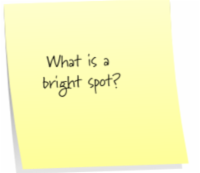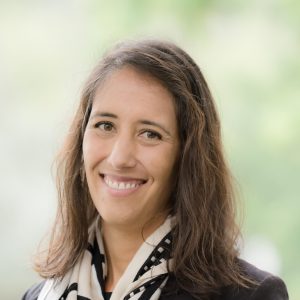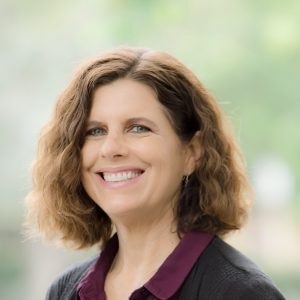Fostering Educator Resilience: Is it time to think about the “whole” educator so everyone thrives?
By Robyn Lee-Giuseffi and Linda Palomino
February 27, 2020
We’re all in this together. And together, we thrive.

It wouldn’t be a stretch to take that familiar health care slogan and make it a bumper sticker for educators because it captures a core truth about schools. The well-being of a school can be measured by the well-being of its individual members along with the cohesiveness and purposefulness of the collective.
We occupy the same space, pass through the same office, use the same copiers, maybe avoid the same staff lounge. But it doesn’t always feel as if we are in anything together. And it certainly doesn’t seem as if everyone is thriving. Schools are typically called “communities” and sometimes even “families”, and yet many teachers feel depleted and isolated as they manage the demands of teaching a room of individuals, each with individual academic and emotional needs.
The California Reading and Literature Project is a teacher professional learning network with the mission of promoting and leveraging the collective knowledge of teacher-leaders, researchers, and scholars in the field of literacy for the benefit of California students. We’ve had the privilege to be part of the Project for more than a decade and deeply value this experience because of the network of dedicated teachers who have taught us so much. There is certainly a lot to learn and understand about literacy if we are going to ensure our students are prepared for the literacy demands of life!
However, sometimes, in our urgency to do better, have we unconsciously contributed to the isolation and mental exhaustion of teachers? Perhaps our urgency has caused us to minimize the human element. Perhaps we’ve been hyper-focused on content at the expense of the relationships. Maybe we should be focusing on the “process” of learning together as a community instead of an idealized “product”. Maybe we should be thinking more about the “whole educator” the way we strive to think about the “whole child”.
Our California Reading and Literature Project network introduced us to Elena Aguilar, her company Bright Morning Consulting and the plentiful resources linked to Ms. Aguilar’s books, The Art of Coaching, (2013) and The Art of Coaching Teams, (2016). Later that year, when Onward: Cultivating Emotional Resilience in Educators (2018) was published, we were especially grateful for the timely introduction to Elena Aguilar’s work.
Onward addresses the “whole educator” in a unique way, by offering a theme and a corresponding disposition for each month of the academic year to align with and support the typical demands on educators. For example, September, when many educators are welcoming a new group of students, the theme is “Build Community” and the disposition is empathy. We are now in our second year of facilitating a book study of Onward and the Onward Workbook with various groups. Also, because we saw and heard how the Onward suggestions were empowering for the book study groups, we began infusing snippets like “What is a bright spot?” from the December chapter, into every gathering.
In the weeks between Thanksgiving and winter break, we opened every professional learning event with a welcome and a question: “What was a bright spot in your day?” We asked this question of principals who had just been given a challenging task with little lead time. We posed this question to teachers who were in the midst of district assessments, report cards, and about to embark on parent conferences. This same question opened our time with a group of teachers who moments before had not been welcoming to a fellow staff member’s announcement – imagine: silence, eyes downward, arms folded. Again, “What was a bright spot?” to the teachers who faced power outages the entire dreary morning.
One afternoon during December, we went to a school site whose parking lot was full of cars and the media center, which was to host a district-wide training, was filled with parents and classes of students. We asked what we could do to help quickly transition from the parent group to the teacher group. The friendly but harried principal rattled off six things that had gone wrong so far that day and she still had a worrisome “Student Study Team” meeting and evening school concert ahead of her. After acknowledging that the day was indeed full of challenges, we asked, what by this point had become our magic question, “What was a bright spot?” This principal, who was breathless the moment before, paused, audibly took a breath, broke into a big smile and said: “The best part was definitely when the classes each took a bow after their performance. You should have seen the first graders take the ‘sprinkler bow’ with their teacher, and the parents were hysterical with laughter!” Her demeanor completely shifted.
Every time we asked the question, “What was a bright spot today?” the tenor of the room settled, people took a deep breath, their shoulders relaxed, they leaned in toward the person sitting across the table. Then, after sharing and learning one small thing about each other’s days, after doing what communities do, they were ready to tackle the common task of preparing students for the literacy demands of life, as a community.
Aguilar, E. (2018). Onward: cultivating emotional resilience in educators. San Francisco, CA: Jossey-Bass.
Aguilar, E. (2018). The onward workbook: daily activities to cultivate your emotional resilience and thrive. San Francisco: Jossey-Bass.

Robyn Lee-Giuseffi is Co-Director of the California Reading & Literature Project

Linda Palomino is Co-Director of the California Readi


